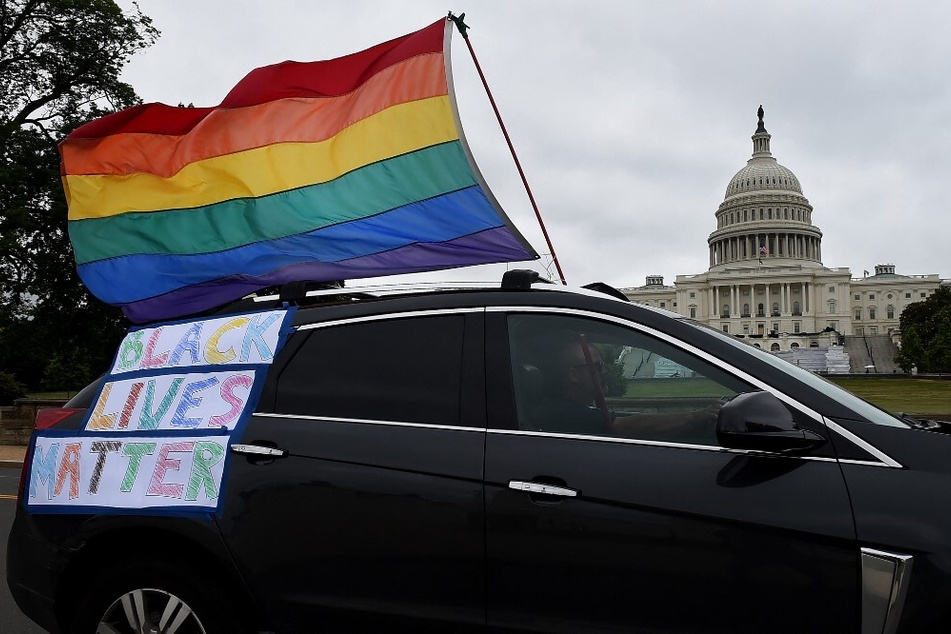Senate advances same-sex and interracial marriage bill with new provisions
Washington DC - The US Senate moved forward on a bill to codify federal recognition of same-sex and interracial marriages on Wednesday, after a bipartisan group of negotiators said they would add measures to bolster religious protections to address concerns from some Republicans.

The 62-37 vote on a procedural move sets up a potential final vote on the legislation later this week with bipartisan support.
The bill would repeal the Defense of Marriage Act, a 1996 law that the Supreme Court found to be largely unconstitutional in a 2013 decision. It would also codify federal recognition of same-sex marriages that are legal in the state where the marriage was performed.
Senate negotiators plan to add language to the bill that would preserve existing religious freedom exemptions for churches and other institutions, which helped garner Republican support.
Ultimately, 12 Republicans voted to advance the bill, including Senator Susan Collins of Maine, the bill’s primary Republican sponsor.
"This bill recognizes the unique and extraordinary importance of marriage on an individual and societal level," Collins said in a floor speech Wednesday. "It would accomplish these goals while maintaining and indeed strengthening important religious liberty and conscious protections."
Senator Tammy Baldwin, a Democrat of Wisconsin, one of the negotiators, said the bill will "not take away or alter any religious liberty or conscience protection" that currently exists under federal law.
"The American people want people to have the freedom to marry the people who they love and choose," Baldwin said.
House has already passed similar legislation

Senators plan to offer the language as a substitute amendment to a similar bill the House passed earlier this year. The floor vote comes after months of bipartisan talks over the measure and a delay related to the midterm elections.
The House passed a similar bill in July that would mandate that all states honor out-of-state marriages regardless of the race, gender, or sexual orientation of the couple.
Majority Leader Chuck Schumer, a Democrat of New York, said he plans to hold a vote on the bill later this week, which would send it back to the House.
Democrats, including Senator Cory Booker of New Jersey, acknowledged that the Senate measure would not go as far as the House bill.
"This is the best we can do in a 50-50 Senate to get something done," Booker said. "We need to get something done, because I don't imagine the House of Representatives, should that shift to Republicans, are going to give us a chance to get something like this passed."
The compromise religious liberty language would leave intact existing religious freedom protections in federal law and guarantee religious institutions tax-exempt treatment regardless of their stance on same-sex marriage.
Businesses and religious groups come out in support of the bill

Numerous business groups, including the National Association of Manufacturers, have announced support for the legislation.
The religious exceptions mollified concerns from some in the Republican caucus, including Retiring Senator Roy Blunt, a Republican of Missouri. In a statement before the vote Wednesday, Blunt cited both the marriage and religious protection provisions in the bill.
"I believe it's better for Congress to clarify these issues than for federal judges to make these decisions," Blunt said.
Several religious organizations have come out to back the legislation, including The Church of Jesus Christ of Latter-day Saints, widely known as the Mormon church.
"As we work together to preserve the principles and practices of religious freedom together with the rights of LGBTQ individuals, much can be accomplished to heal relationships and foster greater understanding," a church news release said on Tuesday.
Schumer mentioned the personal nature of the bill for many, noting that his own daughter and her wife are expecting a child. He framed backing the bill as part of broader efforts to push back on "MAGA Republicans."
"Work with us in a bipartisan way and get things done," Schumer said.
Republicans express concerns over religious liberty

One of the bill backers, Senator Thom Tillis, a Republican of North Carolina, acknowledged that his colleagues still have concerns about the bill.
"I think as people review it and hear from a number of religious organizations and religious liberties organizations that support it, hopefully it'll have positive influence," Tillis said.
Some Republican senators, including Senator Joni Ernst of Iowa, said they were still undecided specifically because of the religious liberty protections in the legislation. Ernst ultimately voted to advance the bill.
"It comes down to the religious freedoms and making sure that institutions like Catholic charities are protected," Ernst said.
Senator Ted Cruz, a Republican of Texas, said the bill "still poses a serious threat to religious liberty," and said he would favor an amendment offered by Senator Mike Lee, a Republican of Utah, that would allow for broader conscientious objections not just tied to religious institutions.
"The language put there is a fake protection, because if this bill passes, the Biden IRS will target churches, religious universities, religious schools, K-through-12 and religious charities, any people of faith that do not accept as a matter of faith same-sex marriage," Cruz said.
Those religious liberty concerns prompted negotiators to pull back on a planned vote on the measure before the midterm elections. Some of those objections remained in the compromise measure, and organizations like the Heritage Foundation announced their opposition.
A congressional push to pass a bill to legalize same-sex marriage followed a Supreme Court decision earlier this year that wiped out a constitutional right to an abortion.
In a concurring opinion, Justice Clarence Thomas said the decisions undergirding same-sex marriage, same-sex relationships and access to contraception should be revisited.
Cover photo: OLIVIER DOULIERY / AFP

